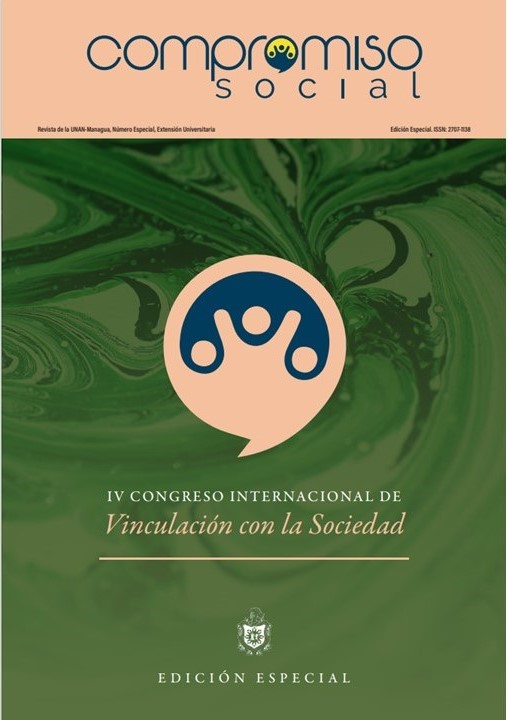Circular Economy as a key strategy for sustainable human development in Tosagua, Manabí (2022-2025)
DOI:
https://doi.org/10.5377/recoso.v1i13.19291Keywords:
Circular economy, Recycling, Local sustainability, InnovationAbstract
The Project deals with the implementation of the circular economy in the Municipal of Tosagua, Manabí, during the period 2022-2025. The circular economy is presented as an essential approach to face global sustainability challenges, transforming production and consumption systems through the reuse, repair and recycling of materials. This model seeks to promote social equity, preserve natural resources and reduce environmental impact, supported by Law Organic of Inclusive Circular Economy approved in Ecuador in 2021.
The project in Tosagua focuses on local strategies that promote sustainable practices to innovation and collaboration between territorial actors. A survey was conducted to evaluate knowledge about the circular economy in several communities in Tosagua, revealing a low level of awareness and participation in related activities. Only 7% of respondents fully understood the concept, while 46% had no knowledge at all. Identified barriers include lack of cooperation, poor technological infrastructure and ineffective public administration. The results underline the need for educational and awareness campaigns to improve knowledge and adoption of the circular economy. Despite the challenges, the circular economy represents a significant opportunity for sustainable economic growth and improved quality of life in Tosagua, requiring joint efforts and innovative practices to overcome current limitations.
Downloads
References
Acosta, I., Marrero, F. y Espenosa, J. (19 de Abril de 2019). LA ECONOMÍA CIRCULAR COMO CONTRIBUCIÓN A LA SOSTENIBILIDAD EN UN DESTINO TURÍSTICO CUBANO DE SOL Y PLAYA. Redalyc, 29(2), 3-19.
Bermúdez, S., y Piloso, J. (2023). Apicultura como estrategia para la conservación de los recursos forestales en el sitio La Pitahaya del cantón Tosagua, Manabí. Trabajo de Titulación, Universidad Estatal del Sur de Manabí, Jipijapa.
Buenaño, D. (26 de Enero de 2024). Economia circular a nivel global.
García, E., y Lena, F. (6 de Abril de 2018). Aplicación del metodo delphi en el diseño de una investigación cuantitativa sobre el fenómeno FABLAB. Realyc(40), https://revistas.uned.es/index.php/empiria/article/view/22014.
Garcia, L. (Diciembre de 2018). Teoría del desarrollo sostenible y legislación ambiental colombiana, una reflexión cultural. Revista de Derecho, (20), 23, 198-215, https://www.redalyc.org/pdf/851/85102008.pdf
Granés, C., y Jara, M. (2024). Barreras Para La Implementación Del Modelo De Economía Circular En Países En Vías De Desarrollo: Una Revisión Bibliográfica (Vol. 8). Quito, Pichincha, Ecuador: Universidad Andina Simón Bolivar.
Guzmán, M., y Guevara, C. (28 de Mayo de 2020). Economia circular, una estrategia para el desarrollo sostenible. Revista internacional de administracion(8), 5-15, https://revistas.uasb.edu.ec/index.php/eg/article/view/2407/2199
Morales, A., Chamba, L., Moreno, J., y Morales, G. (1 de Abril de 2020). El nuevo modelo económico establecido en el Ecuador. Revista Científica Visionaria Digital, 4(1), 2- 21.
Sandoval, V., Jaca, C., y Ormazabal, M. (Agosto de 2017). Economía circular: Relación con la evolución del concepto de sostenibilidad y estrategias para su implementación. Revista Memoria Investigaciones en Ingeniería, 15, 85-95.




